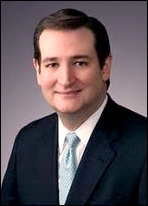Though it is still difficult to forecast the complete US House political picture next year, mostly because redistricting is only about half finished, we already see that more than 40 sitting members will draw serious competition in either the 2012 primary or general election.
Below is a list of 22 incumbents who will be in competitive campaigns next year from states where redistricting is complete. The second half of the overall group will be featured in our Wednesday report.
AR-1 – Rick Crawford (R) – Redistricting added more Democrats to what already was a highly Democratic seat. Crawford will be in a toss-up situation.
CA-3 – John Garamendi (D) – The new 3rd district could conceivably elect a Republican. Watch for a serious GOP challenge to Rep. Garamendi, who is serving his first full term.
CA-9 – Jerry McNerney (D) – Potential challenges in both the Democratic primary and general election await Mr. McNerney, who has chosen to run in a seat that doesn’t include his Bay Area political base.
CA-10 – Jeff Denham (R) – Though Rep. Denham will be the heavy favorite in this new district, it is not as Republican as his current CA-19.
CA-16 – Dennis Cardoza (D)/Jim Costa (D) – The redistricting commission greatly altered the Fresno area. Rep. Costa announced for CA-16 even though his home is in the new 21st, which is much more Republican. Rumors persist that Cardoza may retire.
CA-24 – Lois Capps (D) – The new Santa Barbara seat is a 50/50 district now, so former lieutenant governor and state Sen. Abel Maldonado (R) is a very strong challenger here.
CA-25/26 – Elton Gallegly (R) – Rep. Gallegly can either run against fellow GOP Rep. Buck McKeon (R-CA-25) or in the new marginal 26th district (Ventura County). Keep a retirement watch on Gallegly who even announced such before the 2008 election, only to change his mind.
CA-30 – Brad Sherman (D)/Howard Berman (D) – This will be a tough primary and general election for the two veteran Democratic congressmen. One will not return to the next Congress.
CA-31 – Joe Baca (D) – Rep. Baca does not like his new, and more competitive, 31st district and may hop over to the more Democratic 35th CD, created as an open seat.
CA-32 – David Dreier (R) – Congressman Dreier’s current 26th district seat was broken up into six different parts. He will not run in District 32, as this seat is highly Democratic. Most of his options are poor. If Elton Gallegly does not run in District 26, then that seat is a possibility for Dreier. He could also swing down into District 31 if Rep. Baca moves to CA-35.
CA-38/47 – Linda Sanchez (D) – There is a good possibility that Rep. Sanchez will face strong primary opposition either from Rep. Grace Napolitano (D-CA-38) in the new 38th district, where both of their homes reside, or in the Long Beach-based new 47th district. There, state Sen. Alan Lowenthal (D) has already said he will run. Rep. Laura Richardson (D-CA-37) is also a potential candidate. This seat is also in play for the Republicans. Former Rep. Steve Kuykendall (R-CA-36), is saying that he, too, will run here next year.
CA-39 – Ed Royce (R)/Gary Miller (R) – This is a Republican pairing. The winner retains the seat for the GOP, but one of the two will not return. Most of the territory currently belongs to Royce, who has to be regarded as the favorite in this new configuration.
CA-44 – Janice Hahn (D) – Newly elected Rep. Hahn will likely draw a challenge from fellow Democratic Rep. Laura Richardson (D-CA-37) and state Assemblyman Isadore Hall (D). The seat is heavily minority, so facing either a strong African-American or Hispanic opponent in the general election could doom Hahn’s re-election chances.
CA-52 – Brian Bilbray (R) – Rep. Bilbray was paired with Rep. Darrell Issa (R-CA-49) in new district 49, but will run in the new 52nd. The seat should elect a Republican, but the Democrats are competitive. Former state Assemblywoman Lori Saldana (D) has already announced her candidacy.
GA-12 – John Barrow (D) – Assuming the current Georgia redistricting map passes the Georgia Senate and is signed by Gov. Nathan Deal (R), Rep. Barrow will find himself in a much more competitive district. The new 12th will go from a mid-50s Obama district to one in the mid-40s. The African-American population drops precipitously, as well.
IL-8/14 – Joe Walsh (R)/Randy Hultgren (R) – Another Republican pairing. Rep. Walsh’s current 8th district was eviscerated in redistricting. His best chance at winning re-election to a second term is to challenge fellow GOP Rep. Randy Hultgren in new District 14. A child support payment scandal surrounding Walsh puts Hultgren in the early favorite’s position.
IL-10 – Bob Dold (R) – Redistricting makes the marginal 10th even more Democratic. Freshman Rep. Dold has already announced he will run for re-election here.
IL-11 – Adam Kinzinger (R)/Judy Biggert (R) – Rep. Kinzinger, like Mr. Dreier in California, saw his current district split multiple ways. He will have several choices of where to seek re-election. New district 11 is certainly one of his options, but none are particularly appealing unless Rep. Don Manzullo (R-IL-16) decides to retire. Rep. Judy Biggert (R-IL-13) could also seek re-election here, though the new 11th is much more Democratic than her current seat. Former Rep. Bill Foster (D-IL-14) has already announced his candidacy in this newly configured seat as has a strong chance to convert it to the Democratic column, particularly with President Obama leading the ticket.
IL-13 – Tim Johnson (R) – Originally paired with Rep. John Shimkus (R-IL-19) in the new 15th District, Rep. Johnson has chosen to seek re-election in the marginal 13th District. He can expect serious general election competition.
IL-17 – Bobby Schilling (R) – Though redistricting brought the seat back toward Schilling’s base in the Quad Cities region, the new 17th will be even more Democratic than the previous district. Several strong Dem challengers are already running. Schilling finds himself in a toss-up situation, at best.
___________________________________________________
For further detailed insights, to sign up for my daily email updates, or to sign up to track specific issues or industries, please contact me at PR***@pe*******************.com.




